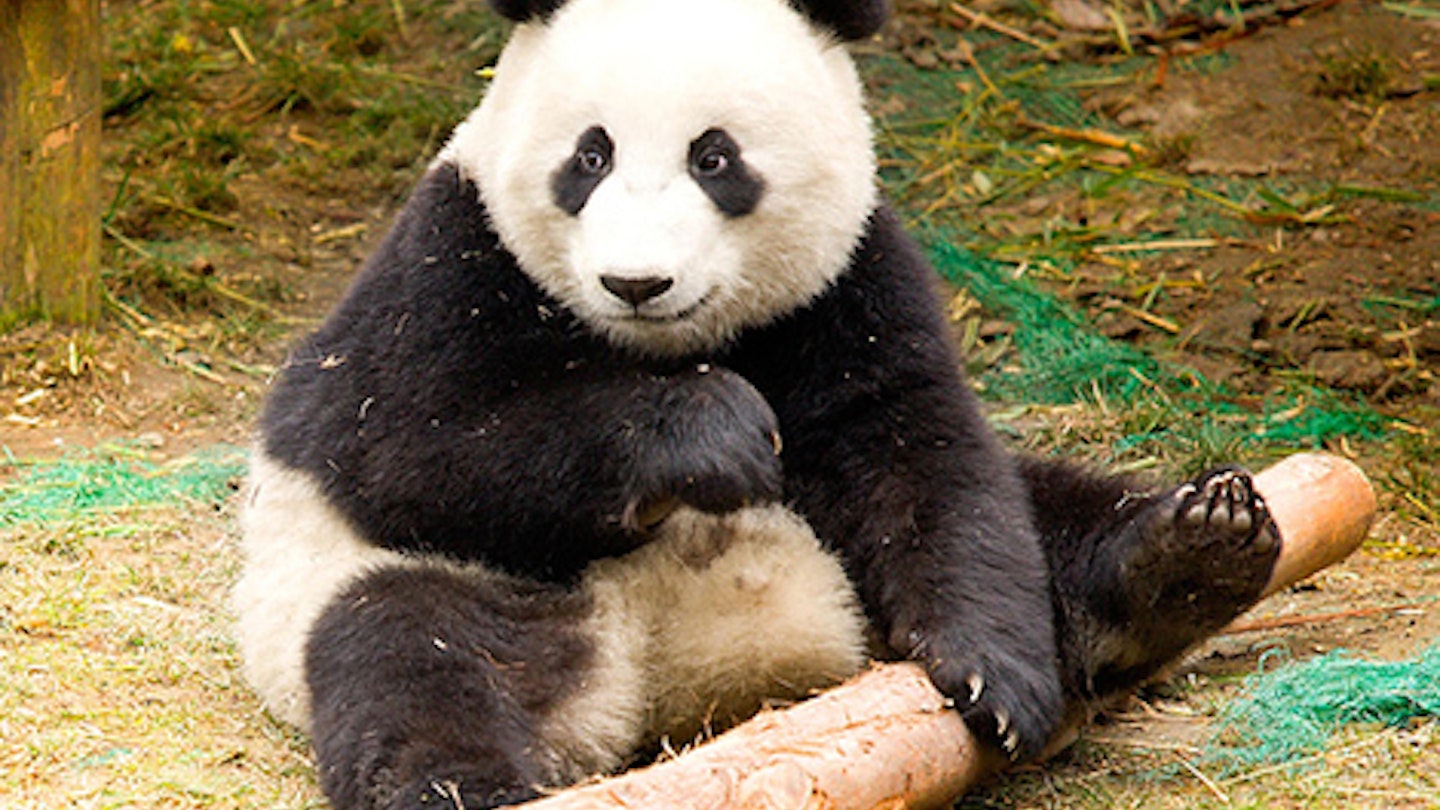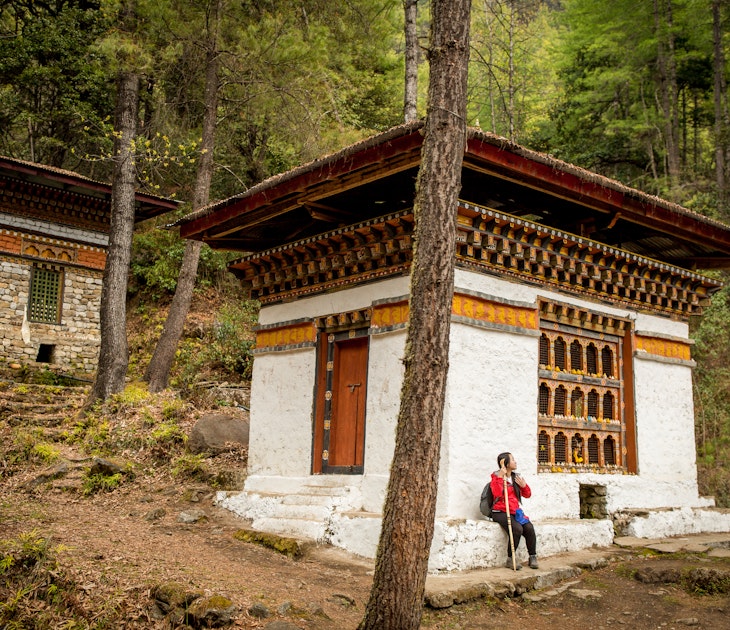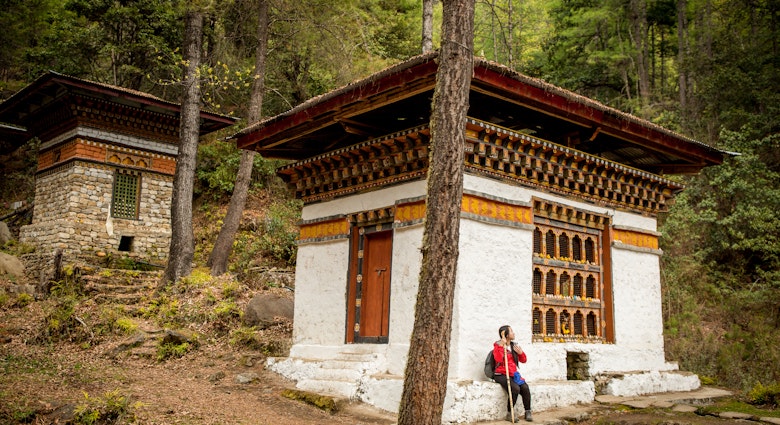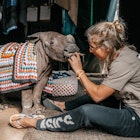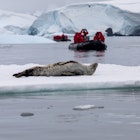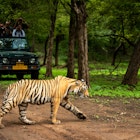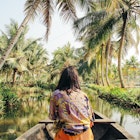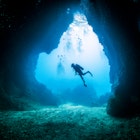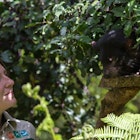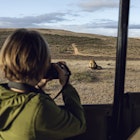Set your pulse racing with the wildest animal adventures around the world. This article is adapted from Lonely Planet's 1000 Ultimate Adventures.
Get close to giant pandas near Xi'an, China
Pandas by Chi King. CC BY 2.0.
These black-and-white beauties are battling extinction but you can help them out – and get close and friendly at the same time – by feeding them and cleaning their habitat every day in Lou Guan Tai village, a 1.5-hour drive from Xi’an, China(home of the famous terracotta warrior statues). The cuteness factor of watching a cuddly, docile panda chow down on bamboo will make up for having to clean up after them – keeping them comfy is important as happy pandas are more likely to get on with breeding. You’ll also get to learn about the local Chinese culture and eat some delicious dumplings along the way.
Go: The Lou Guan Tai Wild Animal Protection Centre does not accept visitors, only volunteers; tours are available through www.realgap.com/china-giant-panda-conservation.
Chimpanzee tracking in Tanzania
It was pioneering researcher Jane Goodall who put Gombe Stream National Park on the map, as she captivated the world with her chronicles of the native chimps’ behaviour. Sitting here amongst the forest trees, watching as these animals groom each other and use tools to get food, the sense of recognition is astonishing; here are some of the human species’ closest relatives. Although your time amongst the animals each day is necessarily short, it’s an experience that will resonate for a lifetime.
Go: Various companies offer chimp-tracking safaris in Gombe. June to October is the best (driest) time to visit; see http://tanzaniaparks.com/gombe.html. The park is reached via boat from Kigoma.
Falconry in Dartmoor National Park, Devon, England, UK
Harrier Hawk by Pharaoh Hound. CC BY 2.0
Falcons are the fastest animals on earth, swooping at up to 320km per hour towards their prey. It’s humbling, then, to have the majestic bird perched heavily on your arm, looking you in the eye, powerfully linking you to them and to a tradition that dates back over 4000 years. Shakespeare was skilled in falconry and you can make a start too on an experience day in Dartmoor amidst an old-world backdrop of green hills and English manors. To cast the falcon, push back and then forward, and off flies your falcon.
Go: On hunting days (October to January) things get more dramatic as you follow the handlers and witness hawks racing to catch their natural prey, rabbits. See www.dartmoorhawking.co.uk.
Dog-sledding in the Scandinavian Arctic, Sweden
Sitting and standing on a sled pulled by furry Siberian huskies is how the Sami people have traditionally crossed the white flat plains and frozen lakes of the Swedish taiga, where mountains of ice are barely distinguishable from snow-buried pine trees. Jump aboard and feel free in the brisk air. You can stay with the Sami people and witness their traditional reindeer-herding life, while meeting some even fluffier husky puppies in training. If you aim for the longest hours of darkness from December to February, you might even catch the Northern Lights.
Go: Dog sled rides with cabins and Northern Light viewing are available through www.naturetravels.co.uk/category-dog-sledding.htm
Ride a camel on the Silk Road in Xinjiang, China
The Journey of Discovery Beijing by landrovermena. CC BY 2.0.
As your sit confidently on your camel, reins in hands, through the rise and fall of straw-coloured dunes in the Taklimakan Desert, the wind dries your perspiration and carries the tinkle of camel bells. This ship of the desert is what connected China, the Arabian Peninsula and Europe for thousands of years – a route known as the Silk Road, transporting not only silk and perfume but technology, religion and the sneaky bubonic plague. Camel tours take you across China’s deserts to attractions such as ancient Buddha statues and involve a few hours of riding per day.
Go: Find a camel tour in a Silk Road destination such as Kashgar or Hotan, both in Xinjiang. Six to 24-day tours are available through www.uighurtour.com.
Feed sharks and stingrays in Australia
Don’t get nervous, these aren’t Jaws-style great whites but much tamer shark species and stingrays. Visiting an aquatic centre in Australia affords the chance to feed and cuddle up to the critters as they tickle your legs in the water. On the feeding menu is octopus, small fish, molluscs and crustaceans for you to hand over to hungry mouths. It is safe enough even for children to wade into the water waist-deep with a zebra shark, a striking silhouetted black stingray hovering nearby. You can feed the marine life from the pool’s edge if you wish, but that’s not as fun as getting close enough to slide your hand along shark skin.
Go: There are Australian Shark & Ray Centres in both New South Wales and Victoria; visit www.ozsharkandray.com.au.
Snake safari, Kenya
Green mamba by Neil. CC BY 2.0.
If the idea of travelling the wilderness of Kenya seeking out some of Africa’s deadliest snakes sounds like heaven rather than hell, this adventure’s for you. Driving through the parks and walking in the jungle, you are hyperaware as your expert guide introduces you to cobras, adders, pythons and more. You’ll see many of these incredible creatures but it’s impossible to become blasé about them; even on the last day, as you watch the massive green mamba slither away up a nearby tree, the hairs on your arms will probably still stand on end.
Go: Bio-Ken Snake Farms operates three- and 12-day snake safaris, which include all transport, food and accommodation; see http://bio-ken.com/index.php/snake-safari. Adventures take place in and around Tsavo East National Park.
Elephant care in Thailand
No, not riding an elephant but nursing one to health after abuse as a circus animal. You have to make house calls every day, trekking into the jungle where it lives alongside monkeys and tropical birds. This is no mere elephant hospital or zoo, it’s the natural environment of the regal creature. Looking into an Asian elephant’s dark eyes, you can feel the emotional connection, which makes it that much harder to say goodbye when it is reintroduced into the wild. You’ll be making a connection with the local community too, learning the language in exchange for yours.
Global Vision International runs volunteer programs for a fee or by scholarship. See www.gviusa.com/programs/volunteer-elephants-thailand.
Whale watching in Kaikoura, New Zealand
You’re on a catamaran. On one side watching over you are the snow-tipped giants of a mountain range. On the other is the ocean stretching out to the horizon until it meets blue sky. Birds dance above. Then in the distance the water breaks as if the ocean is boiling, as the massive nose of a sperm whale lifts into the air with a spray and splutter and smacks back into the deep, exiting with a wave of its gigantic Y-shaped tail. It repeats the dive in and out of the immense ocean, making you feel deliciously small in comparison.
Go: Kaikoura is 180km north of Christchurch, or 2.5 hours’ driving in a car or by coach. There are a number of whale-watching tour providers in town, including Whale Watch Kaikoura.
